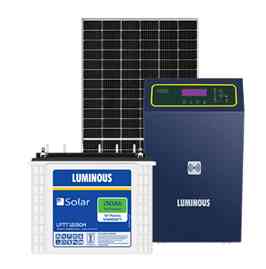How do Off Grid Solar Systems Empower Remote Areas with Reliable and Renewable Energy Sources?
In remote areas where traditional power infrastructure struggles to reach, a ray of hope emerges in the form of off grid solar systems. Consider this: small, isolated communities that were once in the dark are now shining brightly with the help of electricity. Thanks to advancements in renewable energy technologies, these remote locations are now unrestricted by geographic challenges.

In remote areas where traditional power infrastructure struggles to reach, a ray of hope emerges in the form of off grid solar systems. Consider this: small, isolated communities that were once in the dark are now shining brightly with the help of electricity. Thanks to advancements in renewable energy technologies, these remote locations are now unrestricted by geographic challenges.
Solar panels are being used to harness the sun, bringing a sustainable energy source to these underserved communities. This renewable energy source lights homes, schools, stimulates economic development, and improves the overall quality of life. It is fantastic to see how something as simple as renewable energy can transform a community and open doors to a brighter future.
Let us discuss about off grid solar systems and their benefits.

Off Grid Solar Systems
The off grid solar systems operate autonomously, isolated from the grid, and use batteries to store the solar energy they generate. Typically, these systems include solar panels, batteries, charge controllers, grid boxes, inverters, mounting structures, and other critical elements.
These autonomous systems can supply electricity to critical loads in areas inaccessible to the grid. However, it requires technical equipment and can be a little expensive to install. They are an ideal solution for businesses operating for short periods without power.
Benefits of Off Grid Solar Systems in Remote Areas
In remote areas where traditional power grids may be unavailable or unreliable, off grid solar system has many benefits. Mentioned below are some of the benefits:
1. Energy Independence: Off grid solar systems enable individuals and communities in remote areas to generate electricity, reducing their reliance on centralised grids. This independence provides access to electricity despite power cuts or lack of grid infrastructure.
2. Cost Savings: Extending electricity infrastructure in remote areas can be expensive and impractical. Off grid solar systems eliminate the need for expensive transmission lines and infrastructure investments. While the initial cost of establishing a solar system can be higher, the long-term savings in electricity bills and maintenance can be substantial.
3. Environmental Sustainability: Off grid solar systems use renewable energy from the sun, reducing reliance on fossil fuels and reducing carbon footprint. It provides a clean and reliable energy source, leading to a greener and more environmentally friendly future.
4. Improved Livelihoods: Access to electricity through off grid solar system improves livelihoods in remote areas. It allows using electric appliances for cooking, lighting, refrigeration, communication, and entertainment. Essentials such as lighting and electronic charging are readily available, improving living conditions and productivity.
5. Versatility and Flexibility: The off grid solar system can be designed to meet specific energy needs, making it suitable for various applications in remote locations. They can power individual homes, community centres, schools, health care facilities, or agricultural facilities. The scalability of solar systems allows for expansion as energy requirements grow over time.
Acts as an Alternative for Locations with No Access to Grid
In areas where grid infrastructure is unavailable or unreliable, off grid solar systems offer practical solutions to meet the energy needs of communities, homes, and businesses. They include photovoltaic panels that capture sunlight and convert it into direct current (DC) electricity, which is then stored in batteries for later use. They can power devices and appliances, including fans, refrigerators, and communication devices. Off grid solar systems are especially important in remote locations, such as rural towns or isolated areas, where extended power grids can be economically or logistically challenging. Off grid systems enable these communities to access electricity independently, improving their quality of life, enhancing educational opportunities, and supporting economic development.
Conclusion
Using off grid solar systems in remote areas provides many benefits compared to traditional energy systems. They offer a clean, sustainable energy alternative and contribute to these regions' socioeconomic development. To install off-grid solar systems in remote locations, connect with Luminous and get the best deals.
Visit their website to learn more!


 City Air News
City Air News 










